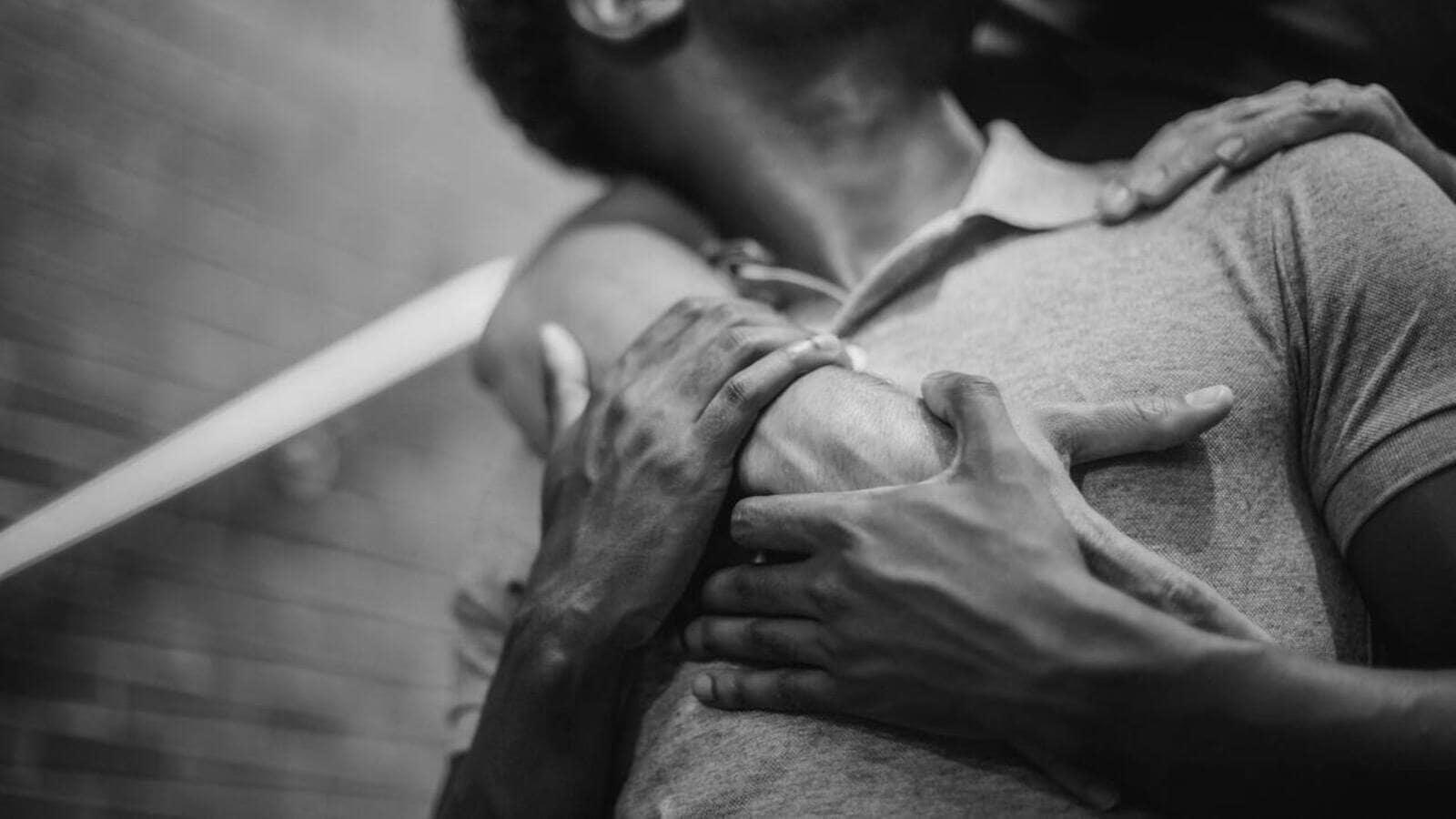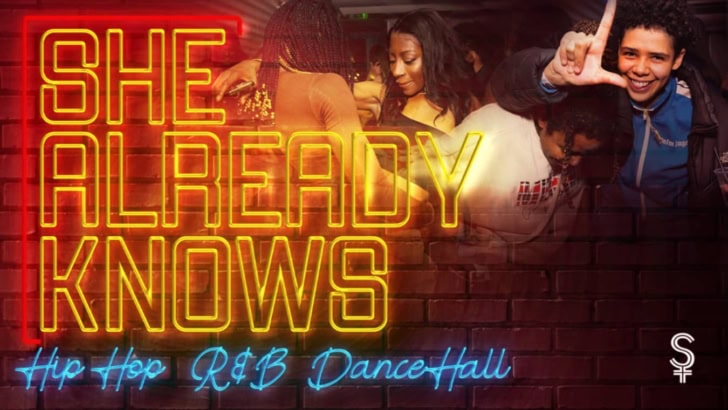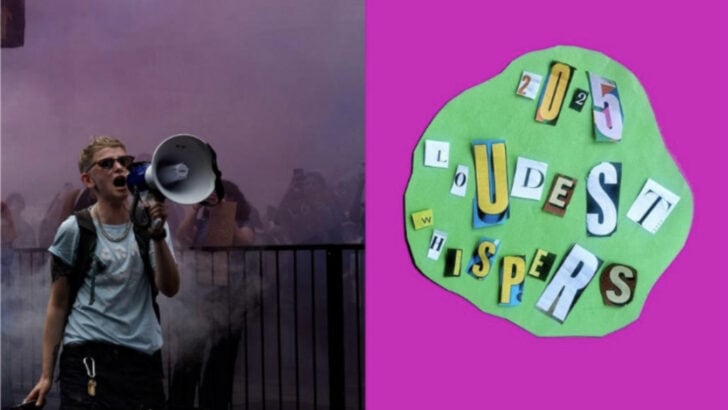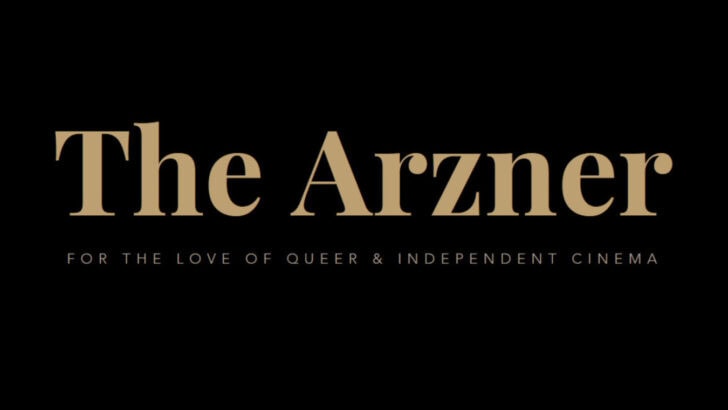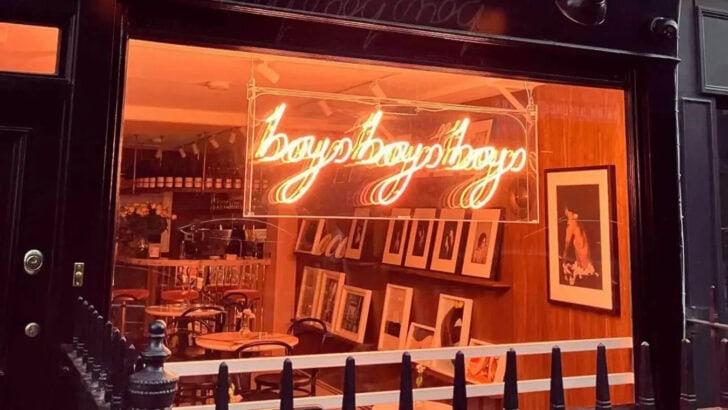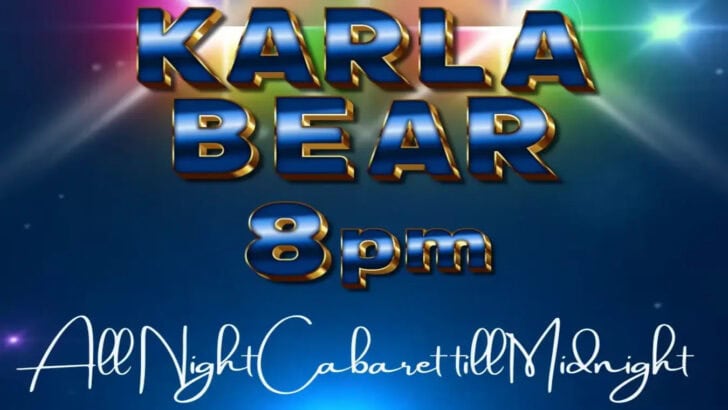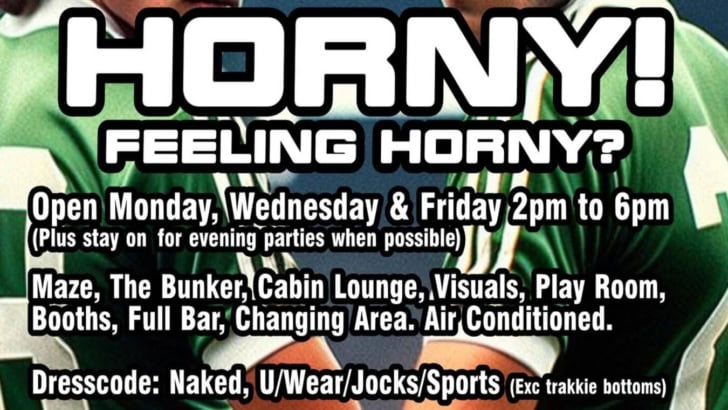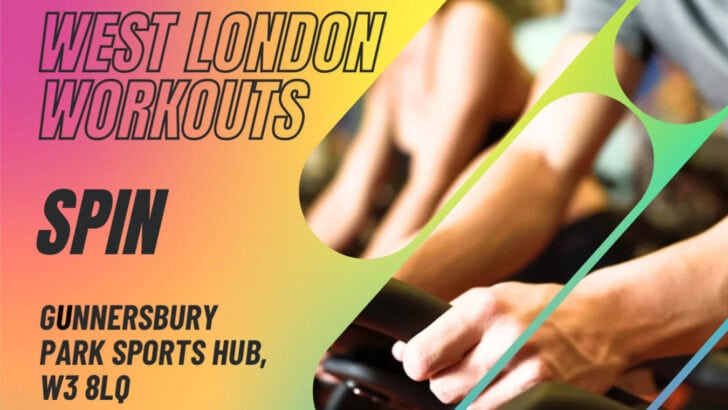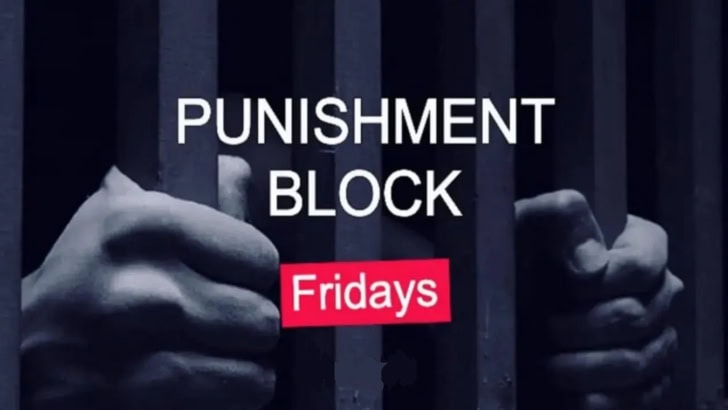My relationship with sex began like many gay men’s; secretive, shameful and wrapped in layers of self-consciousness. Nobody teaches us how to have sex. No parent is going to knock on your bedroom door and say “hey honey, is it time we talked about anal?” LOL!
As I moved through my twenties and thirties, what started as normal and natural sexual exploration, started to morph into something more consuming. I started to see my body and the act of sex as a powerful form of validation, of winning a game that made me momentarily feel like an olympic gold winner. The arrival of Grindr in 2009 combined with my ADHD diagnosis years later, created a perfect storm; a brain wired for novelty, risky behaviour, compulsion and immediate reward meeting an endless supply of potential hookups in my pocket.
The digital acceleration
Before dating apps, my compulsive sexual behavior had natural limitations. Finding new partners required effort such as going out, spending money and investing time in the real world. Apps eliminated these friction points. Suddenly, I could line up two or three encounters in a single evening without leaving my sofa. The dopamine rush from each new match, each conversation and each meetup fed something in me that felt insatiable. I described it once as being driven by a motor that wasn’t actually mine.
My ADHD brain, always hunting for the next hit of stimulation, found a playground without boundaries. The apps never said “no”, they were always there and I was the king of my world. The apps weren’t the cause of my issues, but they were like giving matches to someone who already liked playing with fire. And boy, did I like playing with fire!
I remember one bleary eyed late evening realising I’d spent 10 hours that day on Grindr – searching, seeking, scrolling, organising meetups, chatting to multiple men simultaneously, sharing pics and locations, constantly refreshing to see who was new in the area. I’d bomb around on my bike, travelling here, there and everywhere. Yet despite all this ‘connection’, I felt increasingly isolated, depressed and deeply fatigued. The brief moments of physical pleasure were shrouded by a growing emptiness that no amount of sex seemed to fill.
A secret sex life
What my friends saw was a confident, outgoing gay man with a busy social life, up to lots of interesting things in his work and often the life and soul of the party. What they didn’t see were the days upon days spent compulsively seeking hookups, the dark cruising clubs, the risky situations I put myself in and the mornings I woke up feeling hollow praying that night would come so I could sleep again and escape my own self.
I constructed elaborate stories to explain my whereabouts, canceling plans last minute if a more enticing sexual opportunity arose. I maintained a carefully curated version of myself. A version that was having fun, exploring sexuality, living the sexually liberated gay life expected of me. The reality was less than liberating. I was in a prison. I was using sex to numb feelings of inadequacy, trying to gain some control in my external world that was lacking in my internal one.
Each sexual encounter temporarily quieted the voice of shame, providing momentary evidence that I was desirable, worthy of attention rather than the broken thing I feared I was. But the relief never lasted.
Breaking the silence
My turning point came not in a dramatic rock bottom moment, but in a quiet moment with a close friend. We were having dinner when they gently mentioned they were worried about me, that I seemed distant and disconnected. Something in their genuine concern cracked the facade I’d maintained for so long.
“I think I might be a sex addict” I said, the words tumbling out before I could reconsider. I braced myself for judgment, disgust and rejection as I described some of the things I’d been up to, the places I’d frequented and the sometimes dangerous situations I found myself in.
Instead, they reached across the table and squeezed my hand and said “tell me more”.
That single moment of acceptance opened a door I’d kept firmly shut. Over the following weeks, I began having more and more honest conversations with my closest friends about what was really happening in my life. Each time I shared my truth, I expected to lose their respect and affection.
But each time I shared, I was met with compassion, understanding and love that gradually helped me rebuild my sense of worthiness separate from sexual validation.
One friend commented that they weren’t surprised, not because they saw me as twisted or broken, but because we all find different ways to cope with pain. “Sex is just your particular strategy,” they wisely said. “Some people use work, some use food, some use alcohol and drugs. The question is what pain are you trying not to feel?”
Their words stayed with me. What was I trying not to feel? And more so, what was I trying to gain?
Piecing together the puzzle of desire
I started working with therapist and addiction counselor Matt Landiesel and I began what I came to think of as psychological and spiritual archaeology. I opened the portal of carefully excavating layers of compulsive behavior, desire and addictions to understand what lay beneath them. We waded through my kinks, fantasies, fetishes and desires.
This excavation was not easy. But with Matt’s expert help I examined patterns that stretched back decades, confronting how early experiences of feeling different and unacceptable as a gay kid had created a wound that adult sexual attention temporarily soothed. I had to look at how the way I was bullied at school for being sensitive and feminine had damaged my sense of being an acceptable human. I had to look at all the ways that through my sexual behaviour I was really trying to gain back a sense of control, stability and safety that hadn’t been present from my dad growing up.
I uncovered how my ADHD manifested in hypersexuality, using the neurochemical high of new sexual encounters to self-medicate the dysregulation I felt 24/7.
Most importantly, I discovered what I was really seeking wasn’t sex at all. It was connection, sensuality, intimacy and belonging. To be truly seen and accepted. Wanted. Desired. Sex was simply the most readily available proxy for these deeper needs, a sort of counterfeit intimacy that promised but never delivered what I truly craved.
Understanding the underlying function, or the nuts and bolts if you like, of my behavior was transformative. Rather than seeing myself as broken or my sexuality as problematic, I recognised these patterns as creative adaptations that had once helped me to survive. They were mechanisms attempting to meet legitimate human needs through means that were no longer serving me.
This shift from shame to understanding and compassion allowed me to ask different questions: How might I meet these needs more directly and less problematically? What would genuine intimacy look like for me? What kind of sexuality might actually nourish rather than deplete me?
Redirecting my sexual power
As I reduced my compulsive sexual behavior, I discovered something unexpected – an enormous reservoir of pure creative life force that had previously mostly been channeled exclusively into the pursuit of sex. Why? Because it was easy, it was always there, it never said no and I was in control.
But without multiple hours a day draining away on apps and hookups, I suddenly had time and mental space I didn’t know what to do with.
At first, this was deeply uncomfortable. The restlessness that had driven me to constant sexual seeking didn’t simply disappear. I felt edgy, irritable and uncertain what to do with myself. And I felt like a pinball being bashed around in a pinball machine. I was like a pendulum swinging back and forth between being a ‘good boy’ and a ‘bad boy’.
But this is where movement, dance, music, art and creativity became part of my salvation.
I fully devoted myself to attending conscious dance sessions a few times a week, finding in Ecstatic Dance and 5Rhythms, a way to channel my physical energy, connect with others and express myself. The embodied freedom I experienced on the dance floor gave me access to the aliveness I’d been seeking through sex, but without the aftermath of emptiness and exhaustion, shame and guilt.
I poured myself into other creative projects such as writing music and putting on concerts. I joined a transformative spiritual mastermind called The Way of The Artist-Alchemist with Neo Heart which supported me to dive into my deep-wild creativity.
With each new outlet, the compulsive pull toward sexual acting-out diminished more and more. I wasn’t fighting against my desire but redirecting its energy toward things that left me feeling fulfilled rather than depleted.
This redirection eventually led me to my training as a Sexological Bodyworker with The School of Somatic Sexology. I became fascinated by the intersection of sexuality, trauma and healing. My own journey from addiction to soulful sexuality became the foundation for how I approached working with others as a therapist and the workshops and events I offer in the world.
Turning trauma into treasure
This year I launched a fortnightly experience called Pleasure Medicine, a sensuality workshop and Ecstatic Dance for gay men seeking more authentic ways to connect with themselves and others. What began as my personal healing journey has evolved into a space where other gay men can explore sensuality without being hypersexualised. Where they can learn what embodiment, connection, kindness and genuine community outside of the conventional gay contexts feels like. And it’s a place to dance in joy and delight together.
Creating these gatherings was scary at first. I worried about being seen as a fraud or hypocrite. Who was I, with my history of sexual compulsion and addiction, to guide others toward healthier relationships with their own bodies, desires and each other? Yet it’s precisely this history and my experiences that allows me to hold this space with such depth, delight and joy without judgment.
At every session, I see gay men hungry for connection beyond the parameters set by apps and the traditional gay scene. I recognise in them the same longing that drove my own compulsive behavior; the desire to be touched, to be seen, to be accepted by their own selves and their own tribe.
The difference is that now I can offer pathways toward meeting these needs directly rather than through substitutes that ultimately leave us feeling more isolated.
Learning how to have sex again in my 40s
At 41, I’m still learning how to have sex. Not the mechanical act I mastered long ago, but sex as a form of communication, connection and deep-wild creative expression (‘The Deep-Wilds’ is a term I learned with Neo in The Way of The Artists Alchemist mastermind). I’ve learned how to have sex that emerges from desire, from knowing myself more intimately, and from creativity rather than compulsion. Sex that leaves me feeling more rather than less myself.
This learning involves continuous unraveling of habits formed over decades. It means pausing before acting on sexual impulses to check whether they’re aligned with my deeper values. It requires vulnerability far greater than anything required for a casual hookup. And it requires the courage to communicate honestly and openly which means being seen not just as a body to use, but as a tender heart and soul with deeper needs. It means putting myself on the line to face rejection. And none of this is easy.
Today, I rarely use dating apps. I do have a few on my phone, but I don’t really log on much at all. This isn’t because I judge them as inherently problematic, but because I’ve recognised they don’t support the kind of connection I’m seeking.
Instead, I now meet potential partners through shared interests and community spaces, allowing attraction to develop alongside meaningful interaction and shared interests.
I go to Tantric Connection classes with Andy Butterfield and The Erotic Gateway tantra workshop and play party with The Gay Men’s Connection Group. I’ve started 5Rhythms & freedomDANCE for gay, bi & trans men with Bodie Nick Hunt. And of course I run my own Pleasure Medicine sensuality workshop and Ecstatic Dance for GBTQ men.
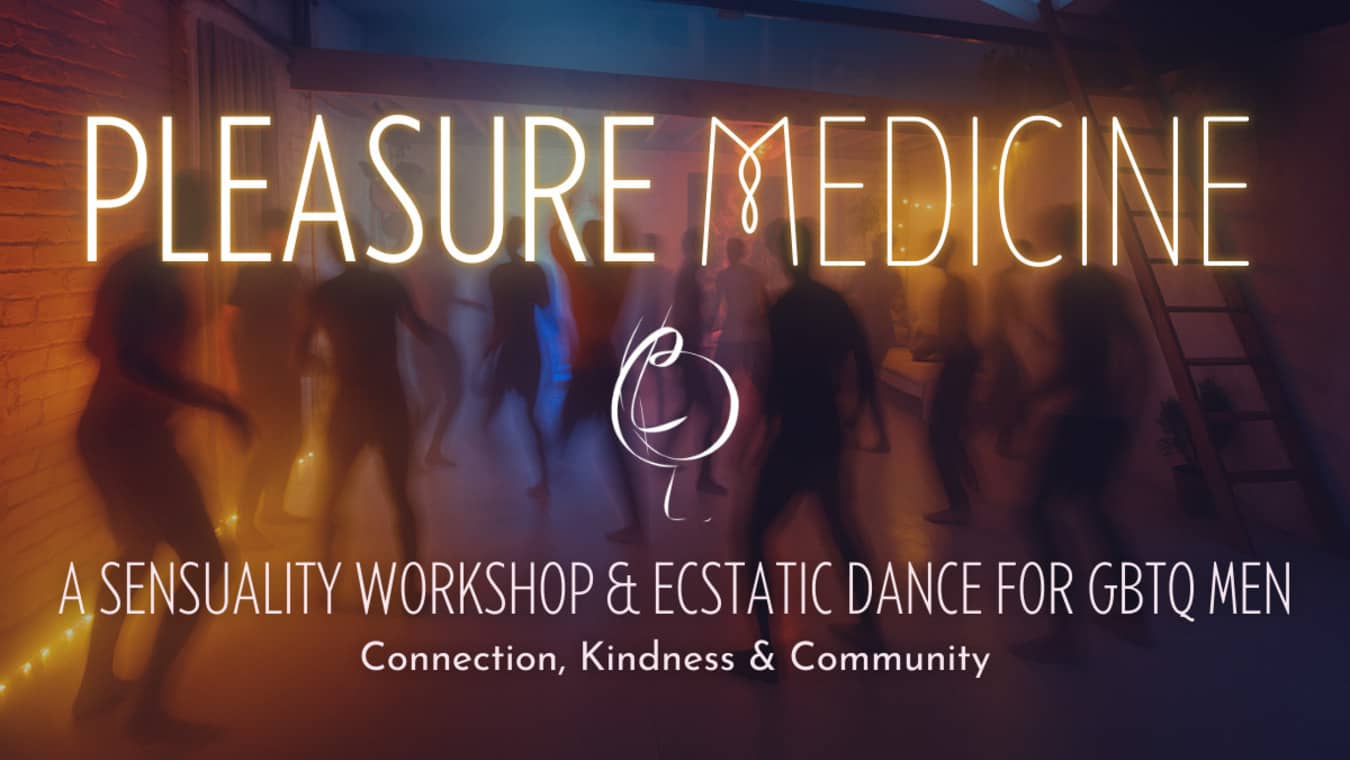
My sex life today is less frequent but infinitely more fulfilling. I seek partners where mutual respect and clear communication create the safety necessary for true intimacy and deep-wild pleasure.
The greatest surprise in this journey has been discovering that healing my relationship with sex hasn’t diminished my sexuality but deepened it. By releasing the compulsive patterns that narrowed my experience to a rigid script of competition, conquest and validation, I’ve found access to a much wider range of erotic expression, where genuine pleasure is the true measure of satisfaction.
Learning how to have sex again in my 40s has really been about learning what sex was always meant to be; a celebration of being alive, of sensuality, of intimacy, of fun, creativity, deep-wild pleasure and all of its other many beautiful expressions.
Pleasure Medicine is every fortnight in Hackney East London.
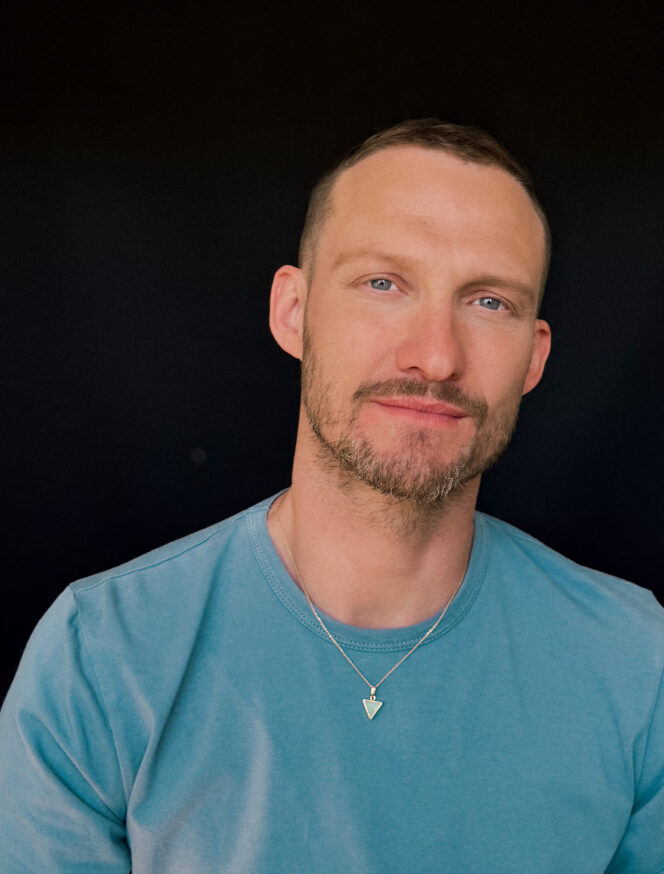
Gary Albert is an award-winning music maker and performer, therapist and embodiment facilitator, conscious DJ, writer and creator of Pleasure Medicine, a bi-weekly sensuality workshop and Ecstatic Dance in Hackney, East London, for GBTQ men. With over a decade of experience as a therapist, and currently training as a Somatic Sexologist, Gary is devoted to helping GBTQ men unlock their pleasure centres, soften shame and rediscover joy, intimacy and sensuality through embodied dance and celebratory sexuality.
